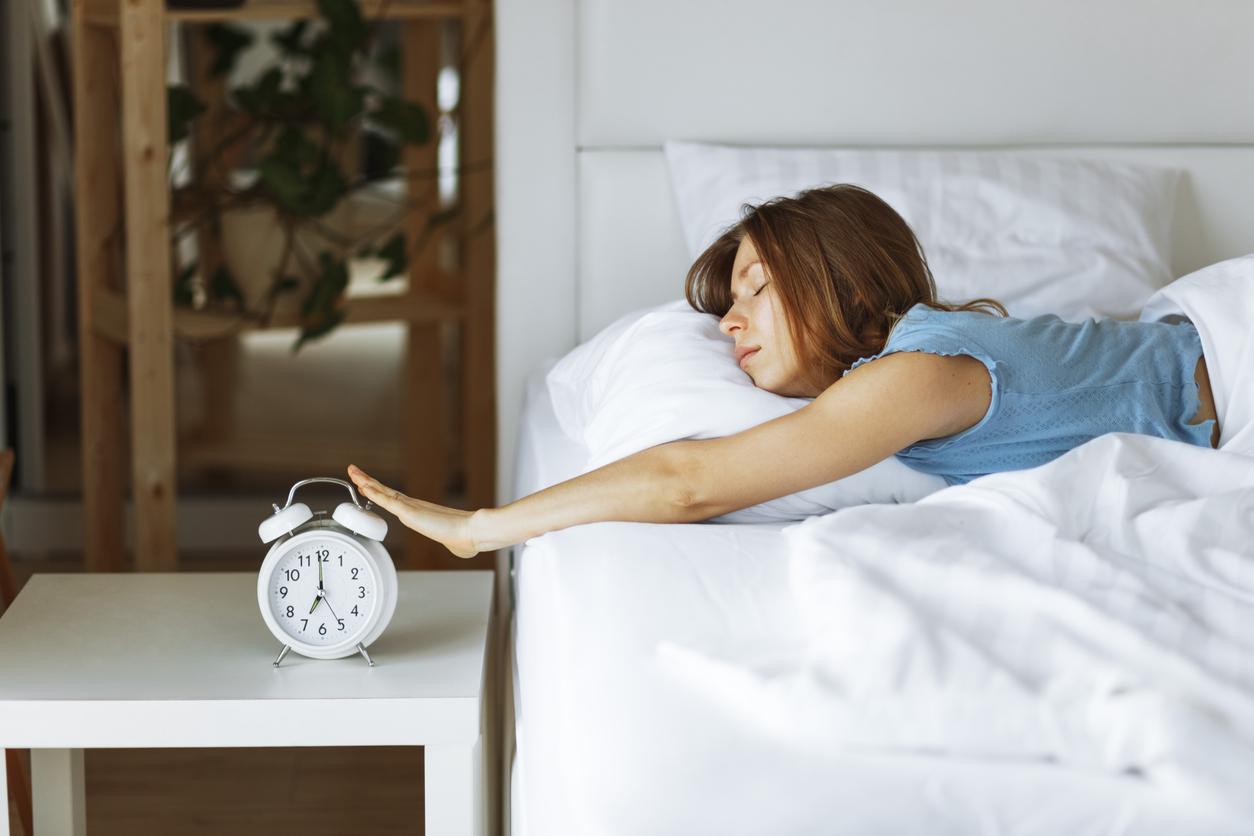Using the “snooze” function on your alarm clock allows you to make it ring again a few minutes later. Practical for difficult mornings, this habit is said to be bad for sleep and health.

- Alarm clocks and cell phone alarms have a snooze function that allows you to repeat the alarm.
- According to sleep experts, it should be banned.
- It may increase the feeling of fatigue and worsen sleep inertia.
Some mornings are harder than others, but luckily the alarm clock helps us wake up. Sometimes that’s not enough: the “reminder”Or snoozethen allows the alarm to ring again, a few minutes later. Practical and easy, this technique is however not recommended. According to experts in Sleep Clinic Servicesin Australia, it is said to be harmful to health.
Why you should avoid using the function snooze of the awakening?
They remind us that when we press the snooze function on the alarm clock, we fall asleep quickly.Your body begins to release hormones that trigger deep sleep.”they specify. There, the alarm clock starts ringing again and interrupts the sleep cycle just as it has begun.You will end up feeling like you had a really bad night.they warn. Even though you may have slept very well“Beyond this feeling of fatigue, repeated use of this function can disrupt the brain.”Shortly after being awakened, you send a signal that it is time to go back to sleep, are they developing. If this continues for at least 2 repetitions, the confusion increases. And you end up suffering from prolonged sleep inertia.” This term refers to the state we find ourselves in when we wake up: it is the 15 to 30 minutes we need to feel fully awake.Recent research has shown that waking up early in the sleep cycle or during deep sleep can cause sleep inertia for 2 to 4 hours.”they warn.

How to wake up easily?
For these specialists, it is essential to stop using this function. To do this, they recommend forcing yourself to get out of bed and get up at the same time every day.Your body will send signals to go to sleep at roughly the same time every night, they explain. Eventually, your body and brain will become so accustomed to waking up at the same time every day that you will no longer need to use an alarm.“To achieve this, they recommend going to bed as soon as the first signs of fatigue appear and placing the phone or alarm clock far away from you, to force yourself to get up in the morning. Once out of bed, a few tricks can help you feel in good shape.”Getting some light, taking a shower, and getting some caffeine are small things that will reduce sleep inertia, recommended Kelly Baron, a clinical psychologist specializing in behavioral sleep medicine at University of Utah Health. You need to give yourself some time to get started!”
















